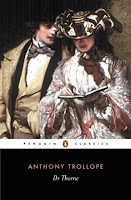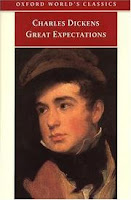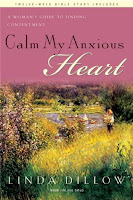Although I haven’t appeared very often on my blog this year, I do
still regularly read and write. And so I couldn’t ignore the tug
that every December exerts on me to make my top 15 list of books read
throughout the year. I read more individual titles in 2021 than the
past several years: 65. But according to Goodreads, the number of
pages was virtually the same as last year, which apparently means I
read a slew of shorter books. That makes sense because I didn’t
read as many classics this time around. If you’re curious about my whole list, you can find my year in books HERE.
And now, on to the list … which, as usual, was very hard to rank!
#15
The Heir of Redclyffe
by Charlotte Mary Yonge
This was the longest book I read in 2021. My friend Sarah and I read it as part of our monthly classic buddy read. Published in 1853, it’s a
fairly normal sentimental Victorian novel, but with an extra layer of
depth because several of the characters were heartfelt Christians who
openly discussed their faith, and there was a beautiful redemption
arc. Read my full review HERE.
#14
Mercy Undeserved
by Kristina Hall
Book 2 of the Moretti Trilogy, this tense historical novel set in the 1920s kept me flipping ebook pages. I really appreciated the message and how the main characters were depicted; they were new believers, and the way they learned to trust God while still struggling with their old nature was impactful as it wove into the suspenseful plot: running for their lives from gangsters. Read my full review HERE.
#13
Hannah Coulter
by Wendell Berry
I’ve heard a lot about Wendell Berry and determined that this year I would read one of his Port William novels. Hannah Coulter is a lovely contemplative novel about an elderly woman in rural Kentucky looking back over her life, spanning most of the twentieth century. Read my full review HERE.
#12
Irena’s Children
by Tilar J. Mazzeo
For the past few months, I’ve been on a research kick about World War Two and the Holocaust. Irena Sendler, a social worker active in the Polish resistance against the Nazis, has fascinated me ever since I heard of her. She is one of the “Righteous Among the Nations,” named by Yad VaShem, Israel’s official Holocaust memorial. She and her allies within the resistance rescued 2,500 Jewish children in Warsaw. This information-dense biography not only gave me a deeper appreciation for Sendler; it set me on a sobering train of thought: What would I have done? Read my full review HERE.
#11
Educated
by Tara Westover
I didn’t expect to like this modern-day memoir as much as I did. Westover’s story is intriguing; raised in a survivalist family in rural Idaho, she educated herself, went to college, and excelled despite her lack of formal schooling and family support. I was drawn in by her masterful writing and her classic underdog story. Read my full review HERE.
#10
Three Men in a Boat
by Jerome K. Jerome
Three men and a dog take a boating expedition on the Thames, and everything hilariously goes wrong from there. This 1889 British novel is nothing profound, but it’s one of the funniest books I’ve ever read, and at that point in my year, I really needed to laugh. It will always hold a fond place in my heart for that gift. Find the book on Goodreads HERE.
#9
Before We Were Yours
by Lisa Wingate
Wingate’s powerful novel is a dual timeline narrative, telling the story of five siblings in the 1930s taken from their parents by the Tennessee Children’s Home and adopted out to separate families. Decades later, a successful career woman and daughter of a South Carolina senator discovers this terrible history and its repercussions in the present day. Find the book on Goodreads HERE.
#8
The Rosemary Tree
by Elizabeth Goudge
All of Goudge’s books are beautiful, but this one seemed exceptionally so. There’s much that this mid-twentieth-century English story encompasses; mostly it’s about a minister and his family and the various troubles and sorrows that they encounter and overcome. Goudge always leaves me feeling uplifted. Find the book on Goodreads HERE.
#7
Pioneer
Girl: The Annotated Autobiography
by Laura Ingalls Wilder
Anyone who is an ardent fan of Laura Ingalls Wilder will enjoy this beautifully printed early version of her beloved series. Not only does it contain the Pioneer Girl manuscript that she tried to get published before fictionalizing and expanding it into the stories we know today; it also gives extensive commentary in the margins and other explanatory notes. Since I published a Little House–inspired novella last summer, this book meant a lot to me. Find the book on Goodreads HERE.
#6
Dr. Thorne
by Anthony Trollope
I enjoy almost every thick Victorian novel I read, but not every one becomes a cherished favorite. However, Dr. Thorne did! The love story, the twists and turns, the characters, the satisfying plot, and the humor all combined to make a lovely read that was hard to put down and left me with a book hangover. See my full review HERE.
#5
The Meaning of Marriage
by Timothy Keller
As the title suggests, this book provides meaningful and realistic insights into marriage. Besides the practical advice, it also gives a beautiful picture of what marriage means in God’s economy. Find the book on Goodreads HERE.
#4
North and South
by Elizabeth Gaskell
I reread North and South this year and loved it just as much as before. This is another classic that my friend Sarah and I read together. Published in 1854, this novel shows Gaskell’s writing at its finest—her deep characters, her development of tension, and her sympathetic grasp of all sides of an issue. The story deals with the clash between mill owners and their workers in northern England, through the eyes of a mill owner and a young woman from the south with a tempestuous relationship that develops into something more. Read my full review HERE.
#3
The Zion Covenant series
by Bodie Thoene
I’ve read four of this six-book series so far, and though some parts are tough to get through, they tell the harrowing, disturbing, yet important story of the lead-up to World War Two in Europe. I relish Thoene’s blend of tension, character development, and descriptive details that bring history to life. Find the first book on Goodreads HERE.
#2
If You Want to Walk on Water, You’ve Got to Get Out of the Boat
by John Ortberg
With humility and humor, Ortberg encourages readers to put their faith into practice, trust God, and follow His calling for their lives. He addresses fear and other hindrances people encounter when they seek to draw closer to God and His plan. Find the book on Goodreads HERE.
#1
The Life You’ve Always Wanted
by John Ortberg
This eye-opening book explores “spiritual disciplines” and how
they can help you live a more fulfilling and dedicated Christian
life. I’ve really enjoyed reading Ortberg because he offers deep,
meaningful truths in an easygoing style that makes me sit up and take
notice, even when I feel convicted. Read my full review HERE.
What were some of your favorite books that you read in 2021?












































